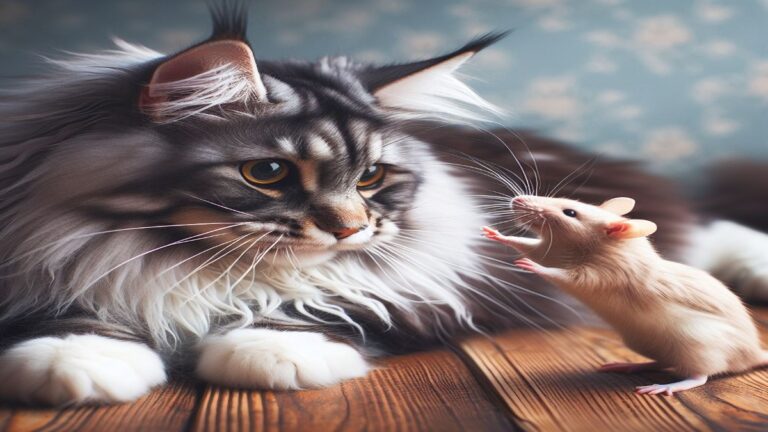Hyenas Pets
Hyenas, the idea of keeping exotic animals as pets has always intrigued people, with various animals, from reptiles to big cats, being kept in homes and private collections. Among these, the concept of having a hyena as a pet is particularly fascinating and controversial.
Hyenas, with their unique appearance and behaviors, have both intrigued and frightened humans for centuries. This article delves into whether hyenas can be pets, examining their natural behaviors, the legal and ethical considerations, and the practical aspects of keeping such an animal.
Understanding Hyenas: Species and Behaviors
Hyenas belong to the family Hyaenidae and are divided into four species: the spotted hyena (Crocuta crocuta), the striped hyena (Hyaena hyaena), the brown hyena (Parahyaena brunnea), and the aardwolf (Proteles cristata). Each species exhibits distinct behaviors and characteristics, though all share some common traits.
Spotted Hyenas
Spotted hyenas are the most well-known and largest of the hyena species. They are highly social animals, living in complex matriarchal societies called clans, which can consist of up to 80 individuals. Known for their powerful jaws and scavenging habits, spotted hyenas are also skilled hunters and display intricate social behaviors.
Striped Hyenas
Striped hyenas are smaller and more solitary compared to their spotted counterparts. They tend to scavenge more and hunt less, often foraging alone or in pairs. They are also known for their distinctive striped coats and nocturnal habits.
Brown Hyenas
Brown hyenas, primarily found in southern Africa, are another scavenging species. They have long, shaggy coats and tend to live in smaller social groups. Their behavior is somewhat similar to that of the striped hyena, with a focus on scavenging.
Aardwolves
Aardwolves are unique among hyenas in that they primarily feed on termites rather than carrion. They are solitary and nocturnal, with less aggressive behavior compared to the other species.
Legal and Ethical Considerations
The legality of keeping hyenas as pets varies widely depending on the country and local regulations. In many places, it is illegal or requires special permits and licenses due to the potential danger and the specific needs of the animals. Ethical considerations also play a significant role in the debate about keeping hyenas as pets.
Legal Issues
In the United States, for example, the ownership of exotic animals, including hyenas, is regulated at both the federal and state levels. The U.S. Department of Agriculture (USDA) oversees the Animal Welfare Act, which sets standards for the care and treatment of animals in research, exhibition, and transport. However, individual states and municipalities have their own regulations, which can be more restrictive.
In many European countries, strict regulations or outright bans are in place regarding the ownership of dangerous and exotic animals. These laws are designed to protect both the animals and the public from potential harm.
Ethical Concerns
Ethically, the idea of keeping a wild animal such as a hyena as a pet raises several issues. Wild animals have complex social, psychological, and physical needs that are difficult to meet in a domestic setting. Keeping a hyena as a pet can lead to stress, behavioral problems, and health issues for the animal. Furthermore, the potential danger to humans, particularly children, must be considered.
Conservationists also argue that the demand for exotic pets can contribute to illegal wildlife trade and poaching, further endangering wild populations. Supporting the captivity of wild animals for private ownership can undermine efforts to preserve these species in their natural habitats.
Practical Aspects of Keeping Hyenas as Pets
Assuming legal and ethical hurdles can be addressed, the practical aspects of keeping a hyena as a pet present significant challenges. These include housing, diet, socialization, health care, and safety.
Housing
Hyenas require large, secure enclosures that mimic their natural environment as closely as possible. This includes ample space to roam, areas for digging, and structures for climbing and playing. Traditional home environments are typically unsuitable for hyenas, and creating an appropriate enclosure is costly and space-intensive.
Diet
Hyenas are carnivorous and require a diet that reflects their natural feeding habits. This means providing a variety of meats, bones, and supplements to ensure they receive the necessary nutrients. Feeding a hyena is expensive and requires knowledge of their dietary needs to prevent malnutrition and health issues.
Socialization and Behavior
Hyenas are intelligent and social animals that require mental and physical stimulation. Spotted hyenas, in particular, need interaction with their own kind to exhibit normal behaviors. Without proper socialization, hyenas can become bored, stressed, and potentially aggressive. Owners must be prepared to invest significant time and resources into enrichment activities and social interactions.
Health Care
Access to specialized veterinary care is essential for any exotic pet, and hyenas are no exception. Regular health check-ups, vaccinations, and treatments for parasites are necessary to maintain their well-being. Finding a veterinarian experienced with hyenas can be challenging and expensive.
Safety
Hyenas are powerful animals with strong jaws and the potential for aggressive behavior. Ensuring the safety of both the animal and the people who come into contact with it is paramount. This includes secure enclosures, proper handling techniques, and constant vigilance. The risk of injury or even fatal encounters cannot be overlooked.
Case Studies and Examples
While rare, there are instances of individuals and organizations successfully keeping hyenas in captivity. These cases often involve significant financial resources, expertise, and a commitment to the animals’ well-being.
Zoos and Sanctuaries
Zoos and wildlife sanctuaries are the most common settings where hyenas are kept in captivity. These institutions have the resources and expertise to provide appropriate care, enrichment, and medical attention. They also play a crucial role in conservation and education efforts, helping to raise awareness about hyenas and their natural habitats.
Private Owners
There are a few examples of private individuals keeping hyenas as pets, often under special permits and with extensive preparation. These cases typically involve individuals with backgrounds in animal care, such as former zookeepers or wildlife rehabilitators. Despite their best efforts, even experienced handlers acknowledge the challenges and potential risks involved.
The Role of Education and Awareness
Education and awareness are critical in addressing the issues surrounding the ownership of exotic pets, including hyenas. Public understanding of the complex needs and behaviors of wild animals can help reduce the demand for them as pets and promote conservation efforts.
Conservation Education
Organizations and institutions that work with hyenas can provide valuable educational resources to the public. This includes information about the species’ natural history, behavior, and the challenges they face in the wild. By fostering a deeper understanding and appreciation for these animals, conservation education can help shift public attitudes toward more ethical and sustainable practices.
Responsible Ownership
For those determined to keep exotic animals as pets, promoting responsible ownership is essential. This involves understanding the legal, ethical, and practical aspects of caring for such animals and being prepared to meet their needs. Prospective owners should be encouraged to seek out reputable sources of information, consult with experts, and consider the long-term commitment required.
Conclusion
The question of whether hyenas can be pets is complex and multifaceted. While it is legally and practically possible in some cases, the challenges and ethical considerations are significant. Hyenas are wild animals with specific needs that are difficult to meet in a domestic setting. The potential risks to both the animals and humans must be carefully weighed.
Ultimately, the focus should be on promoting the welfare of hyenas and other wild animals, whether in captivity or in their natural habitats. Through education, conservation efforts, and responsible practices, we can ensure that these fascinating creatures are respected and protected for generations to come.
Summary
The idea of keeping hyenas as pets is both fascinating and controversial. Hyenas, which include spotted, striped, brown hyenas, and aardwolves, are wild animals with complex social and dietary needs. Legally, owning a hyena is often restricted and requires special permits due to potential dangers and the difficulty in meeting their care requirements. Ethically, keeping hyenas raises concerns about animal welfare, conservation, and the impact on wild populations.
Practically, hyenas need large, secure enclosures, a proper carnivorous diet, socialization, and specialized veterinary care. Ensuring safety is paramount, given their strength and potential for aggression. While some zoos and experienced private owners manage to care for hyenas, the challenges and risks remain significant.
Education and awareness are crucial to promoting responsible ownership and conservation efforts, helping to shift public attitudes towards more ethical practices and the protection of these wild animals.


















Your perspective on this topic is very interesting. Thanks for the detailed explanation.
This was an excellent read. Very thorough and well-researched.